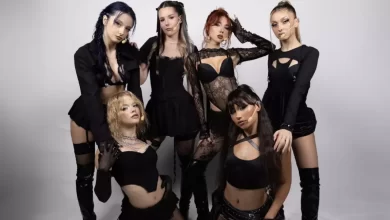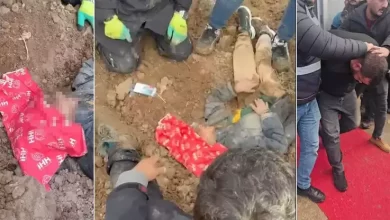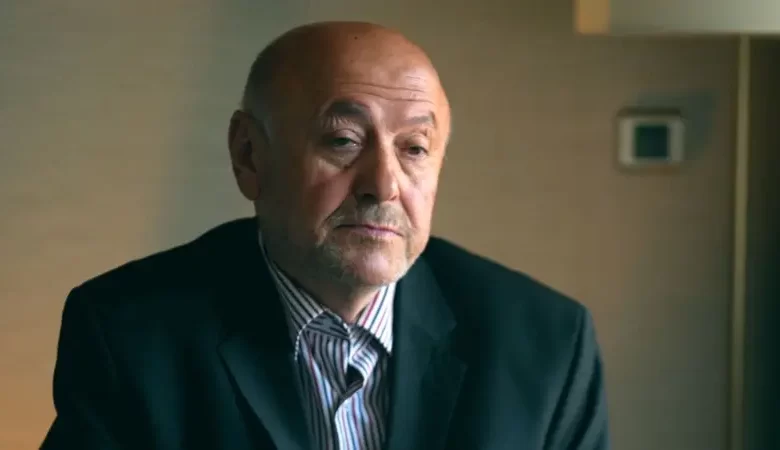
Sadettin Karagöz was once regarded by many as a “grandfather” to refugees, particularly Syrian women in Ankara. He founded a charity shop in 2014 in the Altındağ district — often called “Little Aleppo” — and helped distribute essentials such as diapers, pasta, oil, milk and clothing to thousands of needy Syrian women.
However, a year-long investigation by BBC Türkçe has uncovered serious allegations: Karagöz is at the centre of claims that he sexually exploited some of the refugee women seeking help at his shop.
The allegations
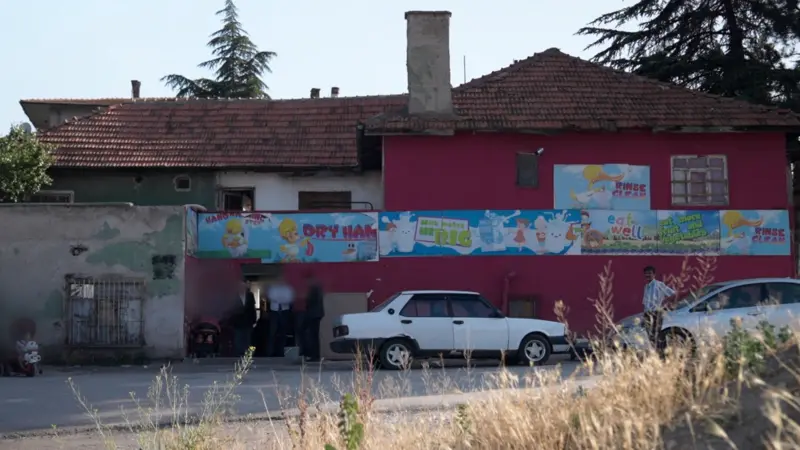
One of the women, Medina (name changed) fled her war-torn home in Aleppo to Turkey in 2016, with three children and abandoned by her husband after one of the children fell gravely ill. She found herself alone in Ankara, caring for her children and relying on the aid provided by the charity shop run by Karagöz.
She describes that initially, Karagöz invited her to the shop and told her: “My door is always open. When you have nowhere to go, come to me, I’ll help you.” But the mood changed. She sensed that he was touching women without their permission. On one visit she says:
“He grabbed me, said he liked me. He started to kiss me. I screamed, told him to let me go. If I hadn’t shouted, he would have tried to rape me.”
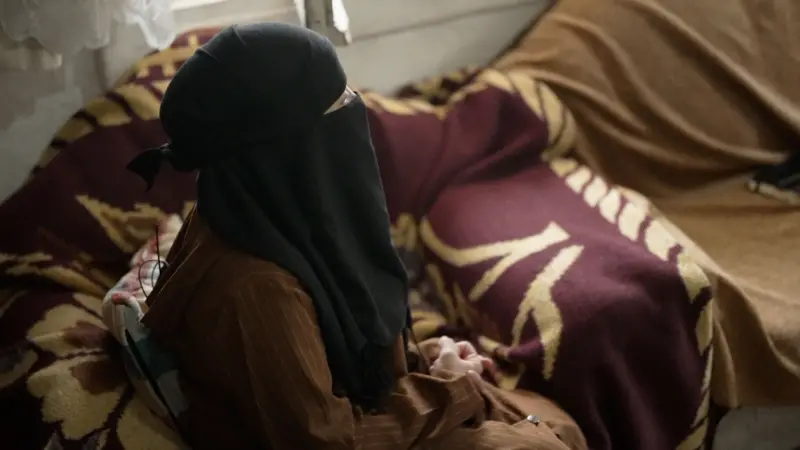
Medina says she managed to escape, threatened to go to the police — yet Karagöz tried to persuade her: “Come to me.” She says one day he even banged on her door at her home with her children inside, threatening her and insulting her when she did not open the door. She claims he told her he would send her back to Syria. Scared of what could happen, she never went to the police and kept silent.
Another woman, Nada (name changed), recalls that Karagöz at first seemed “like an angel from heaven”. On her first visit to the shop, she alleges he told her: “I will only help you if you go with me to a vacant flat.” His words: “Only ten minutes… If you don’t come, I will give you nothing.” She was with her sister-in-law at the time and left quickly. Later, when returning to get diapers for her son, she says:
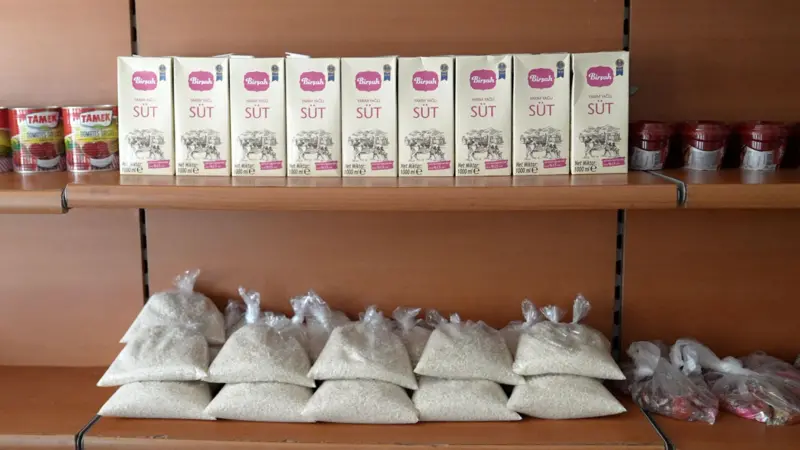
“He touched my breasts and told me ‘Don’t be afraid, this is normal’… Then one day he grabbed my hand and placed it on his genitals. I froze. I was crying.”
She fled and warned other women not to go to the shop again. She never returned.
A third woman, Batoul, a single mother of three who later moved to Germany, also says she was at the shop to get help — and when her back was turned, Karagöz allegedly placed his hands on her buttocks. She says she was furious, left with the aid bundle and walked out. She hopes speaking out will help other women.
Institutional & legal background
These allegations against Karagöz are not the first. According to official records, in 2019 one woman filed a complaint against Karagöz for sexual harassment/assault, but the case was closed due to lack of evidence. In 2022 the United Nations High Commissioner for Refugees (UNHCR) learned of the allegations and conducted confidential interviews with some women. In 2025 the police raided the charity shop, sealed it, and interrogated Karagöz in connection with a new assault allegation. His lawyers shared a June decision of non-prosecution citing insufficient evidence. The police and UN have both stated they are taking the allegations seriously, but note that many victims and witnesses feel unsafe coming forward.
Karagöz’s response
Karagöz denies all the allegations. He told BBC Türkçe: “If the allegations were true, more than three, five or ten people would speak up.” He says he has helped over 37,000 people — mostly refugees — at his shop. He added that the distribution area is small and crowded, under CCTV surveillance, making it impossible for him to be alone with any woman. He also presented a 2016 health report showing he had undergone removal of his left testicle and claims this makes sexual activity impossible. A specialist confirmed that a single-testicle removal does not reduce testosterone by 90 % and thus does not preclude sexual relations — but Karagöz insists he is physically unable to engage in sexual activity. He says he was targeted by false allegations because he reported suspicious individuals to the police in the past, including women involved in drugs or other illegal activities.
In March he renamed his shop the Bir Evim Aşevi Derneği and has applied to become a formal charity organisation.
The women’s current situation
Medina says although she moved to a new apartment and changed her phone number, she still sees Karagöz in her dreams: “I cannot trust any man… I drifted away, got depressed. My only strength were my children.” Her sick child died aged 7, after 10 years in Turkey, and she was recently approved for resettlement to a third country. She says she is relieved for her own new start — but worries for other women: “I still have friends who go to him for aid… He’s powerful, who will listen to us?”
Names of Medina and Nada have been changed to protect their identities.
Context & Significance
In Turkey, where millions fled war and settled as refugees, especially under the banner of humanitarian aid, the story raises serious concerns. A charity shop may act as a lifeline for women who cannot work and rely entirely on external help. When the provider of that help becomes the source of exploitation, the power dynamics become highly dangerous and opaque. Many victims feel trapped by fear of deportation, stigma and retaliation — making such allegations exceedingly difficult to investigate and prosecute.
This case highlights issues around:
- The vulnerability of refugee women in aid settings.
- The lack of safe-reporting mechanisms for women who fear being labelled, sidelined or deported.
- The need for oversight and accountability in aid operations, particularly informal ones.
- The role of surveillance, formalisation and regulatory frameworks in preventing abuse of power.
What Happens Next?
As of now, no criminal prosecution has successfully taken place against Karagöz due to the stated lack of evidence. The sealing of the shop and the investigation show that authorities are engaged. But for the wider refugee community in Ankara and elsewhere in Turkey, the case has become a symbol of the hidden risks in dependency relationships.



